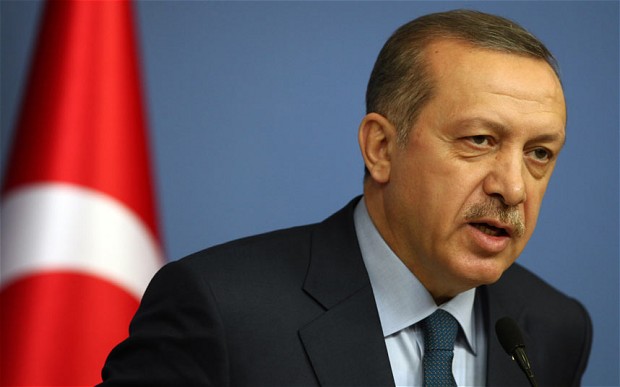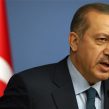
Prospects for Turkey Joining the Russia-Led Customs Union
Publication: Eurasia Daily Monitor Volume: 10 Issue: 201
By:

At the October 24 summit of the Supreme Eurasian Economic Council in Minsk, Kazakhstani President Nursultan Nazarbayev suggested that Turkey may wish to join the Custom Union of Russia, Belarus and Kazakhstan. According to Nazarbayev, Turkish Prime Minister Recep Tayyip Erdogan reached out to him regarding this possibility. “Elsewhere in the West I get asked whether we are creating the Soviet Union or something to suit Russia’s interest. If we let Turkey join, the questions would end,” Kazakhstan’s president noted (https://www.haberevet.com/haber/20131026/707887/avrasya-gumruk-birligi-nden-turkiye-ye-davet-geldi.html). In order to underline the Customs Union’s apparent international attractiveness, Russian President Vladimir Putin echoed Nazarbayev’s remarks about Turkey’s interest in joining.
The revelation has sparked a new debate on the apparent direction of Turkey’s foreign policy away from its orientation toward Europe. On April 26, Turkey became the first and only member of the North Atlantic Treaty Organization (NATO) to be named a “dialogue partner” of the Shanghai Cooperation Organization (SCO) (see Hurriyet Daily News, April 29). Then in September, Turkey apparently chose a Chinese defense firm under United States sanctions to co-produce a $4 billion long-range air and missile defense system, rejecting rival bids from Russian, US and European companies (see EDM, October 25). The sum of these recent developments calls into question Turkey’s continuing commitment to joining the European Union.
Some experts have argued the ruling Justice and Development Party (AKP) government has pushed Turkey toward foreign policy choices that have run counter to Ankara’s more traditional alignment dating from the Cold War and the 1990s. During the Russian-Georgian War in August 2008, Turkey—citing the 1936 Monteux Convention—prevented the US, its NATO ally, from sending large naval vessels into the Black Sea (Hurriyet Daily News, October 20, 2008). Moreover, in the midst of the 2008 war, on August 13, Turkish Prime Minister Erdogan suggested the initiative for a “Caucasus Stability and Cooperation Platform,” which was supposed to include only Russia, Turkey and the three South Caucasus states. Furthermore, Ankara was reluctant to support US sanctions against Iran, adopting—especially at first—a diverging policy from its traditional allies (Haaretz, March 31, 2012).
All these changes in Turkey’s foreign policy are driven by an adjustment in the government’s understanding of international relations under the AKP. Turkey’s decision makers have come to the following three interpretations of shifts in modern global trends:
1. The center of gravity in international relations has shifted and global affairs are no longer Western-centric. So Turkey cannot depend solely on the West.
2. During the Cold War, Turkey was a buffer against Soviet expansionism. But Turkey lost this geopolitical significance in the post–Cold War era and now must develop renewed geo-strategic value based on other issues of international importance. In particular, if Turkey can sufficiently improve and build its relations with the Middle East and East Asia, Ankara believes it can play a bridging role between the East and West (Bulent Aras, “Davutoglu Era Turkish Foreign Policy,” SETA Policy Brief, May 2009, pp. 11–12).
3. Being a NATO member has prevented Turkey from cultivating positive relations with Eastern states like Russia, Iran and China. In the post–Cold War era, however, Turkey needs to change its image of a regional representative of the North Atlantic Alliance, and instead increase its relations with the East. Turkey should prove that its foreign policy is independent of NATO and the West (Haberturk, August 19).
Yet, Ankara’s new understanding of global trends notwithstanding, joining the Custom Union over the EU appears to make little sense economically. According to economic analysis conducted in Turkey, Custom Union membership will negatively impact the country’s exports (https://www.eecon.info/papers/397.pdf). Turkish Economy Minister Zafer Caglayan, meanwhile, has stated that the trade volume per year between the EU and Turkey is approximately $150 billion (https://www.turkiyegazetesi.com.tr/ekonomiturkiye/41425.aspx); whereas, the annual trade volume between Turkey and the Customs Union members—Russia, Belarus and Kazakhstan—is estimated to be no more than $40 billion. Moreover, in order to join the Russia-Belarus-Kazakhstan Customs Union, Turkey will need to first exit the customs union with the EU, which it has been a part of since 1996. Moscow has previously asserted that Ukraine cannot simultaneously move closer toward EU membership and join the Customs Union (see EDM, October 16); therefore, Turkey will also not be able to do both.
Unresolved diplomatic issues also stand in the way of Turkey’s Customs Union membership. Another country aspiring to join the Russia-led economic bloc is Armenia (see EDM, September 5). However, the border between Turkey and Armenia has remained closed since the 1990s due to Armenia’s military occupation of Karabakh and surrounding Azerbaijani territories following the Nagorno-Karabakh War (1988–1994).
Still, Turkey’s theoretical decision between the European Union and the Customs Union cannot be explained solely by economic or foreign policy considerations. The country’s European integration program also strongly impacts Turkey’s domestic political and democratic reforms. Under the EU’s guidance, Turkey has already introduced many sweeping reforms to meet European legal prerequisites for membership (https://www.euractiv.com/enlargement/eu-turkey-relations-linksdossier-188294). And on September 30, 2013, following two years of stalled progress in Turkish-EU membership negotiations, Ankara announced it was introducing a “democratization package” of political reforms, which was positively evaluated by the European Commission’s 2013 Progress Report (Hurriyet Daily News, October 2; European Commission—MEMO/13/895, October 16). Brussels’s endorsement of Ankara’s democratization efforts was followed up at the EU’s October 21–22 ministerial meeting. There, European foreign minister declared their official approval for the reopening of Turkey’s accession negotiations starting in November. The EU’s agreement to restart Turkey’s membership talks had earlier been delayed by Germany’s concern over the Erdogan government’s crackdown on the Gezi Park protests in Istanbul (Hurriyet Daily News, October 22).
Therefore, considering the upward trend in Turkish-EU relations and the economic limitations of the Russia-Belarus-Kazakhstan Customs Union, Erdogan’s apparent overtures to the Russian economic bloc can best be explained by Ankara’s concerns over EU-US free trade talks, which are occurring simultaneously. Turkey worries that, as a member of the Turkey-EU customs union, a European free trade agreement with the United States may negatively impact the Turkish economy if Ankara is not a party to the US-EU deal. Turkish Economy Minister Zafer Caglayan has even openly asked Brussels to abolish the Turkey-EU customs union and negotiate a new free trade deal with Turkey in its place (Hurriyet Daily News, March 28). Erdogan’s request to Nazarbayev for Turkey’s participation in the Customs Union is, thus, evidently a political warning message to the European Union not to take Turkey’s needs for granted.




